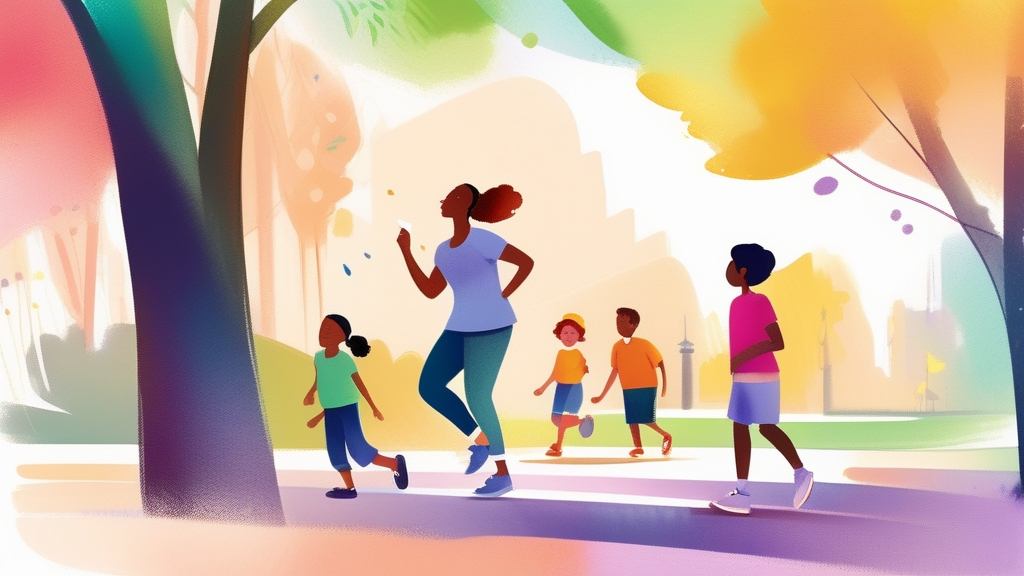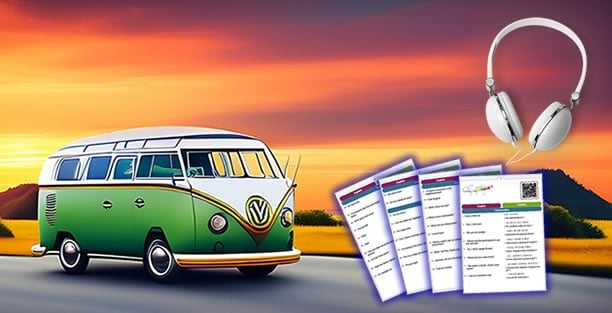Learn Urdu
| English | Urdu | |||
|---|---|---|---|---|
| Hello | ہیلو | |||
| Hello | اسلام و علیکم! | |||
| Good evening | شام بخیر | |||
| Goodbye | خدا حافظ | |||
| See you later | بعد میں ملتے ہیں | |||
| See you later | پھر ملتے ہیں۔ | |||
| Yes | جی ہاں | |||
| No | نہیں | |||
| Excuse me! | برائے مہربانی! | |||
| Excuse me! | پلیز | |||
| Thanks | شکریہ | |||
| Thanks a lot | بہت شکریہ | |||
| Thank you for your help | آپ کی مدد کے لیے آپ کا شکریہ | |||
| Thank you for your help | آپ کی مدد کا شکریہ | |||
| You’re welcome | اس کا ذکر نہ کریں۔ | |||
| You’re welcome | شکریے کی کوئی بات نہیں۔ | |||
| Okay | ٹھیک ہے | |||
| Okay | اوکے | |||
| How much is it? | یہ کتنے کا ہے؟ | |||
| Sorry! | معذرت! | |||
| I don't understand | میں سمجھا نہیں | |||
| I don't understand | میں سمجھی نہیں | |||
| I get it | میں سمجھ گیا ہوں | |||
| I get it | میں سمجھ گئی | |||
| I don't know | مجھے نہیں پتہ | |||
| Forbidden | ممنوعہ | |||
| Forbidden | یہ منع ہے۔ | |||
| Excuse me, where are the toilets? | معاف کیجئے گا، بیت الخلاء کہاں ہیں؟ | |||
| Excuse me, where are the toilets? | ٹوائلٹ کہاں ہے؟ / واش روم کہاں ہے؟ | |||
| Happy New Year! | نیا سال مبارک ہو! | |||
| Happy Birthday! | سالگرہ مبارک! | |||
| Happy Holidays! | چھٹیاں مبارک | |||
| Congratulations! | مبارک ہو! |
Objectives Do you want to learn the basics of Urdu to handle the most common everyday situations in Pakistan or India? Loecsen offers a structured Urdu course for complete beginners, aligned with the skills expected at the CEFR A1 level. Vocabulary and sentences are selected to reflect real-life daily situations, such as introducing yourself, understanding simple exchanges, asking short questions, or interacting politely, while following a clear and progressive learning path. There is no abstract method or artificial content here: you focus on what truly matters, with complete sentences, grammar explained through usage, special attention to pronunciation and language structure, and modern tools to support effective memorization. As a result, in just a few weeks, with 5 to 15 minutes a day, you reach your first A1 language goal and gain practical autonomy from your very first exchanges in Urdu.
Learn Urdu online: a complete guide for beginners
Urdu is often perceived as difficult because of its Arabic-based script and its formal literary reputation. In reality, spoken Urdu is highly regular, logical, and expressive, and it becomes accessible very quickly when learned through real everyday sentences.
The Loecsen Urdu course is a free online Urdu course for complete beginners. It focuses on spoken comprehension, polite interaction, and real-life usage, rather than academic grammar.
You do not learn Urdu by studying rules first. You learn it by listening, repeating, recognizing patterns, and reusing full sentences.
Where Urdu is spoken — and which Urdu this course teaches
Urdu is one of the major languages of South Asia. It is:
- the national language of Pakistan and a key language for education, media, and public life
- widely understood across North India (especially in urban areas) because it shares its grammar with Hindi
- spoken by large diaspora communities (UK, Gulf countries, North America, etc.)
This course teaches Standard Urdu as used in Pakistan (the most common “reference” form in media and formal contexts), while keeping the vocabulary and sentences usable in everyday conversation.
In practice, spoken everyday Urdu can vary by region and social context, but beginners do not need to worry about dialect differences at the start. The Loecsen corpus focuses on safe, widely understood phrases that work across Pakistan and Urdu-speaking communities abroad.
If you learn the Loecsen Urdu sentences, you will be understood in Pakistan, and you will also recognize a large part of “Hindustani” speech in India because the core grammar is shared.
History and nature of the Urdu language
Urdu is an Indo-Aryan language that developed in South Asia, strongly influenced by:
- Persian (vocabulary, literary style)
- Arabic (religious and formal terms)
- Local Indian languages (grammar and structure)
Modern Urdu shares its grammar and core structure with Hindi. The main difference lies in:
- Writing system (Urdu uses an Arabic-Persian script)
- Vocabulary register (Urdu uses more Persian-Arabic words)
Understanding the Urdu writing system clearly
Urdu uses a script derived from Perso-Arabic writing. This script may look intimidating at first, but its logic is consistent and learnable.
Urdu writing represents sounds, not ideas. If you can pronounce a word, you can learn to read it.
Direction and general structure
Urdu is written:
- From right to left
- On a single horizontal line
Letters connect to each other, and their shape may change depending on their position in the word.
Letters and pronunciation
Urdu has:
- Consonants inherited from Arabic and Persian
- Additional letters for South Asian sounds
- Vowels that are often implicit in writing
This means that listening is essential. Learners rely on audio + repetition to associate written forms with real pronunciation.
How Urdu pronunciation really works
Urdu pronunciation is not tonal. Meaning does not change with pitch, unlike Chinese or Thai.
What matters most is:
- Clear consonants
- Natural rhythm
- Stress on the correct syllable
shukriya – Thank you
By repeating full sentences aloud, learners naturally acquire correct pronunciation without technical phonetic study.
Urdu grammar: simple, stable, and efficient
Urdu grammar is far simpler than it looks at first:
- No verb conjugation by person
- No grammatical gender agreement in verbs at beginner level
- Stable sentence patterns
Basic sentence structure
Urdu typically follows a Subject – Object – Verb order.
main nahī̃ samajhtā – I don’t understand
Negation is formed by placing نہیں (nahī̃) before the verb. The structure remains stable.
Questions
qīmat kyā hai? – How much is it?
Questions are usually formed by:
- Keeping the same sentence structure
- Adding a question word
- Using intonation
Politeness and levels of speech in Urdu
Urdu places great importance on politeness. Choosing the right form of “you” is essential.
-
آپ (āp) – polite / respectful “you”
Used with strangers, elders, formal situations -
تم (tum) – neutral / friendly “you”
Used with friends or peers -
تو (tū) – very informal “you”
Can sound rude if misused – not for beginners
Always use آپ (āp). It is always correct, always respectful, and never awkward.
shukriya – Thank you (polite / neutral)
Learning Urdu through real sentences
Loecsen introduces Urdu through complete, high-frequency sentences used in real life.
assalāmu ʿalaykum – Hello / Peace be upon you
mujhe samajh nahī̃ āyā – I didn’t understand
By repeating these sentences, learners absorb:
- Pronunciation
- Grammar
- Politeness
- Natural rhythm
A practical and effective learning routine for Urdu with Loecsen
Learning Urdu in a sustainable way does not require long study sessions or heavy theoretical work. What matters is regular contact with real language, built around listening, repetition, and meaningful reuse. The Loecsen method is designed specifically to match how Urdu is actually acquired by beginners.
At its core, the approach combines:
- Audio-first exposure to train the ear before forcing production
- Complete everyday sentences instead of isolated vocabulary lists
- Contextual repetition so words are remembered with meaning and usage
- Active recall to move expressions from short-term to long-term memory
In concrete terms, an effective daily routine looks like this:
- Practice every day, even just 5 minutes. Urdu responds extremely well to short, frequent exposure.
- Learn full sentences such as greetings, questions, or simple statements, not disconnected words.
- Repeat aloud to absorb Urdu rhythm, stress, and natural flow.
- Replay the same expressions several times until recognition becomes automatic.
- Occasionally write 1–2 short sentences by hand to reinforce recognition of the Urdu script.
- Reuse known sentences by changing one element (place, person, number, time).
- Use Listening Mode on low-energy days: passive exposure still builds understanding.
- Practice with AI dialogues to simulate real-life situations (greetings, taxi, restaurant, asking for help).
- Trust Spaced Repetition (SRS) and the Super Memory system to review expressions at the right moment.
Urdu is remembered through repeated exposure to familiar sentence patterns, not through memorizing grammar rules.
Staying motivated while learning Urdu
Feeling uncertain at the beginning is completely normal — especially with a new script and unfamiliar sounds. Motivation in language learning is not about intensity, but about maintaining contact with the language.
- Lower your daily goal instead of stopping completely.
- Return to sentences you already understand: confidence rebuilds very quickly in Urdu.
- Switch to listening only on days when speaking feels difficult.
- Accept approximation: being understood matters more than sounding perfect.
- Focus on comprehension first; clear speech comes naturally later.
Five minutes every day is far more effective than one long session once a week.
This is exactly why the Loecsen Urdu course is structured the way it is: to keep you progressing steadily, without overload, and without losing motivation.
Frequently asked questions about learning Urdu
Is Urdu difficult for beginners?
Urdu looks complex because of its script, but its grammar and sentence patterns are very regular.
Can I learn Urdu online by myself?
Yes. With a structured, listening-based course like Loecsen, Urdu can be learned autonomously.
Do I need to read Urdu to speak it?
No. Speaking and understanding come first through listening. Reading supports confidence later.
How long before I understand basic Urdu?
With regular practice, most learners begin understanding everyday sentences within a few weeks.
Course syllabus – What you’ll learn
- Essentials 3-5H • 64-96D • 25-38 sessions
- Conversation 3-5H • 64-96D • 25-38 sessions
- Learning 1-2H • 61-92D • 10-15 sessions
- Colours 1-2H • 61-92D • 10-15 sessions
View all lessons (17)
- Numbers 4-6H • 67-101D • 40-60 sessions
- Time tracking 3-5H • 64-96D • 25-38 sessions
- Taxi 2-3H • 62-93D • 15-23 sessions
- Family 2-3H • 62-93D • 15-23 sessions
- Feelings 2-3H • 63-95D • 20-30 sessions
- Bar 3-5H • 64-96D • 25-38 sessions
- Restaurant 3-5H • 65-98D • 30-45 sessions
- Parting 2-3H • 62-93D • 15-23 sessions
- Transportation 0-0H • 59-89D • 0-0 sessions
- Hotel 3-5H • 65-98D • 30-45 sessions
- Looking for someone 1-2H • 61-92D • 10-15 sessions
- Beach 3-5H • 65-98D • 30-45 sessions
- In case of trouble 2-3H • 63-95D • 20-30 sessions





